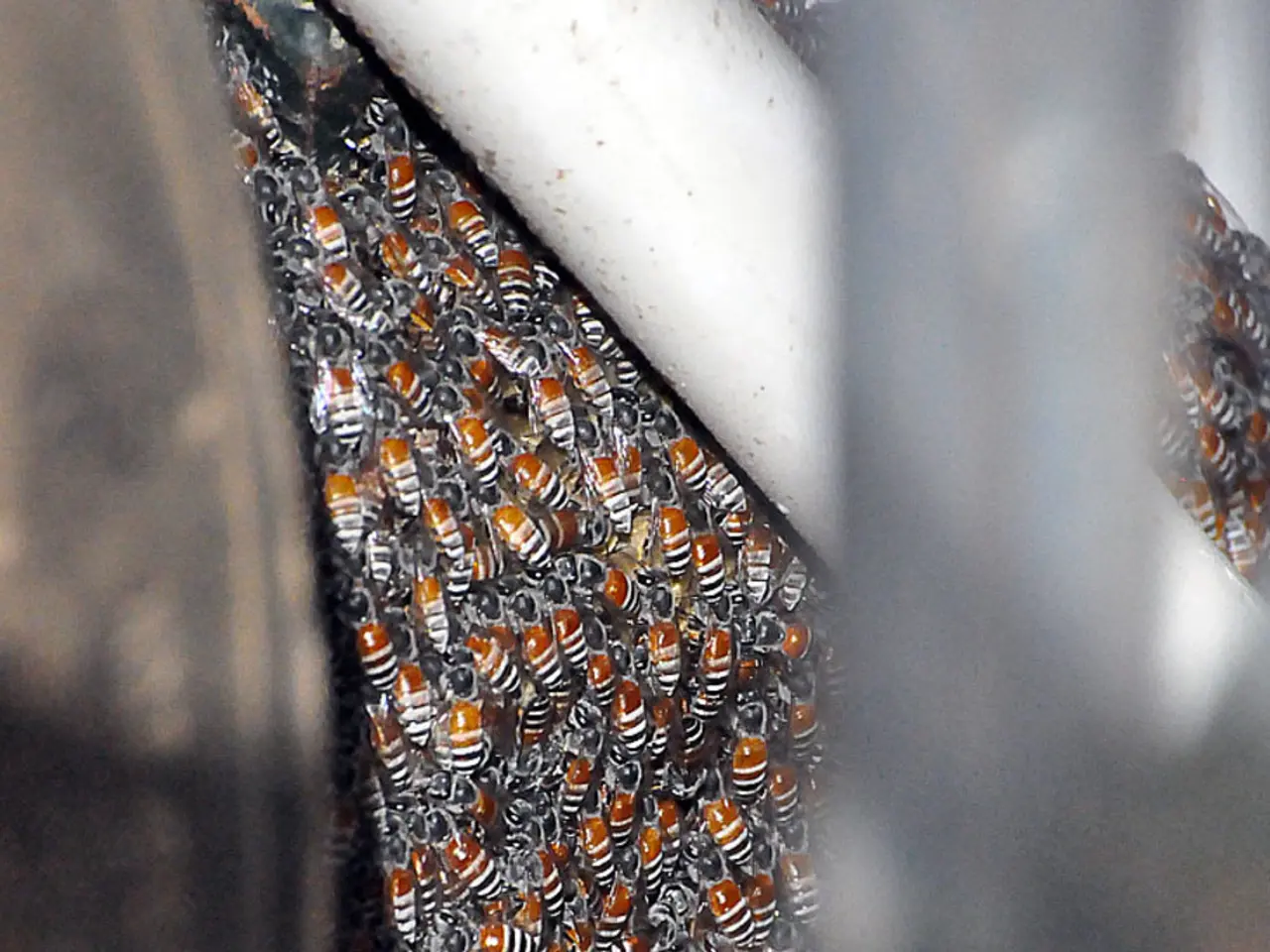Encouraging Honey Consumption Promoted Among Latvian School Students by Beekeepers
In Latvia, a unique initiative is gaining traction - the European Honey Breakfast project. The project, aimed at providing a spoonful of honey to every child in school once a week, is backed by Jānis Kronbergs, the project manager, and Valters Brusbārdis, Chairman of the Board of the Latvian Beekeeping Society.
Both Kronbergs and Brusbārdis have emphasised the importance of education and understanding about the benefits of honey. Kronbergs believes that educational institutions can already include honey in their menus, with cooperation between caterers, beekeepers, and parents being the key. Brusbārdis, meanwhile, has questioned why honey is not reaching the children, despite being on the shopping list, and suggested investigating the factors that may be preventing its distribution.
The project, if implemented, would not pose a problem in terms of honey availability, according to Brusbārdis. Kronbergs also noted that there are no obstacles in legislation or budget for the inclusion of honey in school menus.
The primary funding for this project is expected to come from the Common Agricultural Policy (CAP) budget of the European Union. The EU provides financial support to farming and agricultural programs that promote local production and rural development, including projects like supplying honey to schools as part of nutrition and agricultural awareness programs. Given the current political context, the European Parliament is advocating for an increased CAP budget, recognising agriculture's strategic role.
Beyond direct CAP funding, the project could also seek support from national or regional agricultural development funds within Latvia, partnerships with local farmers and beekeepers’ associations, EU calls for proposals related to rural development, health, and nutrition programs in schools, and possible co-financing through national government education or health budgets if honey supply aligns with child nutrition goals.
School caterers, according to Ilona Dreimane of the Association of Caterers in Educational Institutions, are willing to include honey in their menus. Dreimane asserts that including honey in school lunches would not increase costs significantly. Kronbergs suggested that individuals may need to take the initiative to start incorporating honey into school meals, rather than waiting for direction from above. Beekeeping cooperatives could assist in supplying honey for the project, in collaboration with school caterers.
The Latvian beekeepers are estimated to produce approximately 100 tonnes of honey per school year for the project, which is about 5% of the current annual production in Latvia. Despite honey not being a cheap product, the cost of implementing the project would be minimal, with approximately 1 cent per day needed for each child to taste a spoonful of honey in school once a week.
The health benefits of honey compared to candy are also highlighted by Kronbergs, suggesting that children should be encouraged to eat a spoonful of honey instead. If a slice of rye bread with honey is served as a dessert in schools, along with school milk, it would not be more expensive than other dessert options.
In summary, the European Honey Breakfast project in Latvia presents a sweet and nutritious proposal for school lunches. With the primary funding route being through the EU Common Agricultural Policy, supported by national implementation and possibly complemented by school nutrition programs, the project is poised to bring a taste of Latvian honey to thousands of schoolchildren.
- Jānis Kronbergs, the project manager of the European Honey Breakfast project in Latvia, believes that educational institutions can already include honey in their menus with cooperation between caterers, beekeepers, and parents being key.
- The Latvian Beekeeping Society, led by Chairman Valters Brusbārdis, is backing the European Honey Breakfast project, which aims to provide a spoonful of honey to every child in school once a week.
- Beyond direct funding from the Common Agricultural Policy (CAP) budget of the European Union, the European Honey Breakfast project could also seek support from national or regional agricultural development funds within Latvia, local farmers and beekeepers’ associations, EU calls for proposals related to rural development, health, and nutrition programs in schools, and possible co-financing through national government education or health budgets if honey supply aligns with child nutrition goals.
- Despite honey not being a cheap product, the cost of implementing the European Honey Breakfast project would be minimal, with approximately 1 cent per day needed for each child to taste a spoonful of honey in school once a week.
- The health benefits of honey compared to candy are highlighted by Kronbergs, suggesting that children should be encouraged to eat a spoonful of honey instead, such as serving a slice of rye bread with honey as a dessert in schools along with school milk.




